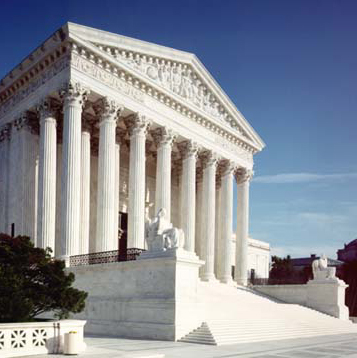
Private companies can include arbitration clauses in employment contracts to prohibit employees from filing class action lawsuits against them to fight perceived federal wage and hour and other labor law violations, the Supreme Court ruled Monday in a 5-4 decision.
In the Arbitration Act of 1925, Justice Neil Gorsuch wrote in the majority opinion, Congress said that arbitration agreements providing for individualized proceedings must be enforced, and that act overrides overrides the 1935 National Labor Relations Act. Therefore, arbitration clauses in employment contracts can require that claims be brought individually rather than in class actions.
Congress could change the law, which would amend the court’s decision, Gorsuch said.
“The respective merits of class actions and private arbitration as means of enforcing the law are questions constitutionally entrusted not to the courts to decide but to the policymakers in the political branches where those questions remain hotly contested,” he wrote.
Justice Ruth Bader Ginsburg, in writing a dissent to the majority opinion in the case, which was three consolidated cases — Epic Systems Corp. v. Lewis, Ernst & Young LLP v. Morris and NLRB v. Murphy Oil USA, Inc. — said the ruling could result in more companies trying to evade wage and hour laws.
“Employers, aware that employees will be disinclined to pursue small-value claims when confined to proceeding one-by-one, will no doubt perceive that the cost-benefit balance of underpaying workers tips heavily in favor of skirting legal obligations,” she wrote.
AFL-CIO President Richard Trumka said that beyond wage and hour cases, the court’s decision also could affect sexual harassment and discrimination cases. He and Ginsburg called on Congress to pass legislation to address the matter.
“We call upon Congress to immediately enact legislation making clear that no worker can be forced to give up their right to effectively challenge illegal conduct in the workplace in order to keep their job,” Trumka said in a statement.
SEIU International President Mary Kay Henry also issued a statement on Monday, writing in part: “Today, the Supreme Court has made it more difficult, if not impossible, for working people to use our legal system to fight against unlawful employer policies like wage theft, unequal pay and other forms of discrimination. No person working in the United States should have to sign away their rights just to have a job.”
The National Labor Relations Board since 2012 had held that individual arbitration agreements containing class-action waivers violated the National Labor Relations Act, but after Monday’s ruling, the board said it respected the Supreme Court’s decision, “which clearly establishes that arbitration agreements providing for individualized proceedings, and waiving the right to participate in class or collective actions, are lawful and enforceable.”
Fifty-five cases pending before the board allege that employers violated the National Labor Relations Act by maintaining or enforcing individual arbitration agreements or policies containing class- and collective-action waivers, according to the board. “The board is committed to expeditiously resolving these cases in accordance with the Supreme Court’s decision,” the federal agency’s statement said.
A spokesperson for the U.S. Chamber of Commerce told McKnight’s Senior Living that the organization was pleased that Monday’s ruling restores the law to what it had been before 2012.
“Employees and businesses will again have access to a fair and reasonable system for resolving their claims, rather than being effectively barred from getting justice for smaller disputes due to the complexity and high costs of our court system,” the spokesperson said. “Gutting America’s arbitration system harms all Americans but one group – the plaintiffs’ bar. Plaintiffs’ class action lawyers will vigorously attack this decision because they will lose hundreds of millions in fees.”



